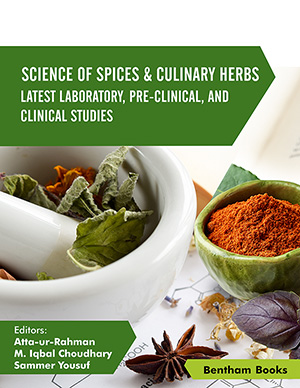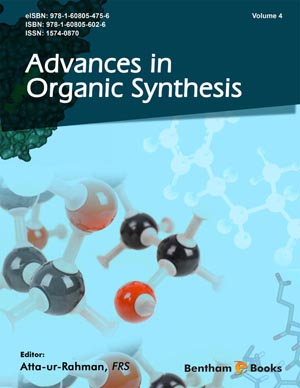Abstract
Curcumin, a key component of Curcuma longa L.'s rhizome, has a wide
range of biological activities, as evidenced by intensive research over the last five
decades. Curcumin has recently been utilized as an alternative medical ingredient in
Southeast Asia to cure a variety of diseases, including stomach trouble, flatulence,
jaundice, arthritis, sprains, wounds, skin infections, etc. Curcumin has also been shown
to have antioxidant, anti-inflammatory, antiviral, antibacterial, antifungal, and
anticancer properties. Medicinal chemists employ rational structural modifications to
improve the pharmacokinetic properties of a potential candidate to make them a
therapeutically useful candidate. The objective of the chapter is to summarise the
various modifications that have been carried out in curcumin’s structural framework
concerning its medicinal property. An elaborate discussion will be presented on
antioxidant and anticancer activities.
Keywords: Anticancer activity, Antioxidant activity, Curcumin and its analogues.






















